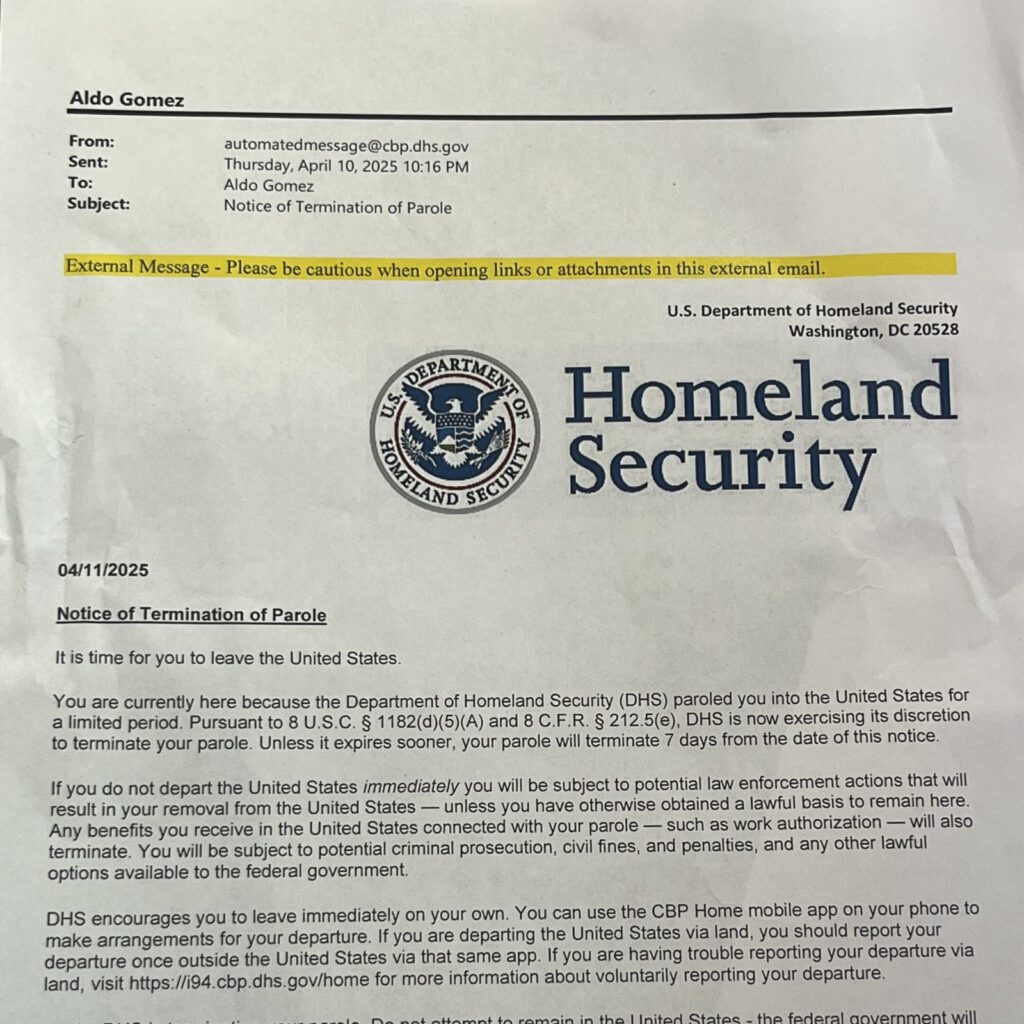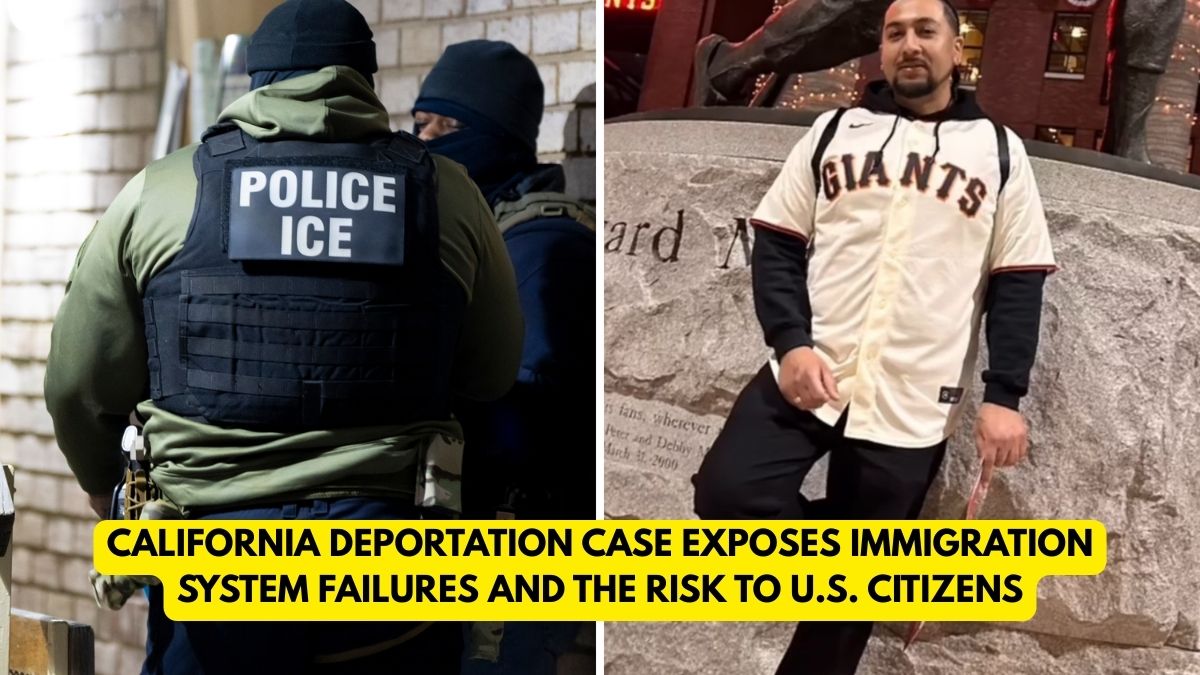In an unsettling turn of events, a California man was ordered to be deported despite being born in the United States, underscoring a growing issue within U.S. immigration enforcement.
The incident sheds light on systemic flaws, including bureaucratic errors, racial profiling, and the risk of wrongfully detaining U.S. citizens.
The case highlights the urgency of reforming immigration practices to ensure that U.S. citizens are not caught in a tangled system that mistakenly targets them for deportation.
Background of the Incident
A man in California, whose birth certificate clearly shows that he was born in the United States, was reportedly issued a deportation order. Despite presenting his birth certificate and making his citizenship known, immigration officials sought to send him back to a country he had never lived in.
This situation is not isolated; other U.S. citizens have faced similar situations where their citizenship was ignored due to mistakes made during their detention or profiling.

The troubling aspect of this case is the reliance on flawed databases and a lack of proper verification systems, which led to the mistaken deportation order. U.S. citizens, particularly those from marginalized communities, are disproportionately impacted by these errors, raising questions about racial profiling and systemic bias within immigration enforcement agencies.
Systemic Issues in Immigration Enforcement
This incident is not an isolated one. The United States has seen a number of high-profile cases where U.S. citizens have been wrongfully detained and deported due to errors in immigration records or clerical mistakes.
One of the most notorious cases was that of Pedro Guzman, who was deported to Mexico in 2007, despite being born in Lancaster, California. He was held for nearly three months in Mexico before the error was corrected.
Another case involved Mark Lyttle, who was wrongfully deported to Mexico in 2008, despite being a U.S. citizen born in North Carolina. Lyttle’s case gained significant attention due to his mental health issues and the lack of proper identification during his detention. He eventually returned to the U.S. after several months in Latin America, a journey that was fraught with difficulties.
These cases highlight the failures of the immigration enforcement system, specifically the reliance on incorrect or incomplete data to make life-altering decisions.
Flaws in the Immigration System
The root of the issue lies in the broken verification system used by U.S. Immigration and Customs Enforcement (ICE). Inaccurate or incomplete information about an individual’s citizenship status can result in wrongful detentions.
Furthermore, racial profiling and biased assumptions about immigrants can also play a role in these mistakes. U.S. citizens, particularly people of color, are often subjected to heightened scrutiny, which increases the likelihood of being wrongfully detained or deported.
Another contributing factor is the inadequate due process provided to individuals during immigration proceedings. Many people detained by ICE, including U.S. citizens, do not have the opportunity to prove their citizenship status before being deported. This lack of procedural safeguards is a significant issue, as it allows wrongful deportations to occur without the necessary legal oversight.
Legal Challenges and Court Cases
Several individuals have successfully challenged their wrongful deportations in court. In the case of Gonzalez v. ICE, a U.S. citizen was detained due to a clerical error in his immigration records. The court ruled that the immigration authorities had failed to adequately verify his citizenship before taking action. This case set a precedent for future legal challenges against wrongful detentions based on faulty immigration records.

Calls for Reform
This case, and others like it, have sparked calls for reform in U.S. immigration enforcement. Advocates argue that the current system fails to protect U.S. citizens from wrongful detention and deportation.
There have been repeated calls for better training of ICE agents, more robust verification systems, and increased accountability for errors made by immigration authorities.
One critical step in reforming the system would be improving the verification process used by ICE. Currently, immigration officers often rely on outdated or incomplete information from various databases, which can result in wrongful detentions. Upgrading these systems and implementing more rigorous checks could help prevent such mistakes in the future.
Conclusion
The wrongful deportation of a U.S. citizen due to bureaucratic errors is a reminder of the flaws within the immigration system. While the incident in California may seem isolated, it is part of a larger issue that has affected many U.S. citizens. As the nation grapples with these systemic failures, there is a need for immediate reforms to ensure that such injustices do not continue.
Relevant Resources
- U.S. Citizenship and Immigration Services (USCIS)
- Immigration and Customs Enforcement (ICE)
- American Civil Liberties Union (ACLU)
This article has been carefully fact-checked by our editorial team to ensure accuracy and eliminate any misleading information. We are committed to maintaining the highest standards of integrity in our content.

Deepak Grover is a dedicated content writer at OTE News, specializing in government affairs, public policy, and current events. With a keen eye for detail and a passion for factual reporting, he ensures readers receive accurate and insightful news. Deepak holds a degree in Political Science and has experience in research-driven journalism.
When not writing, he enjoys reading historical books, exploring hiking trails, and staying updated with global political trends. His commitment to ethical journalism makes him a trusted voice at OTE News.




